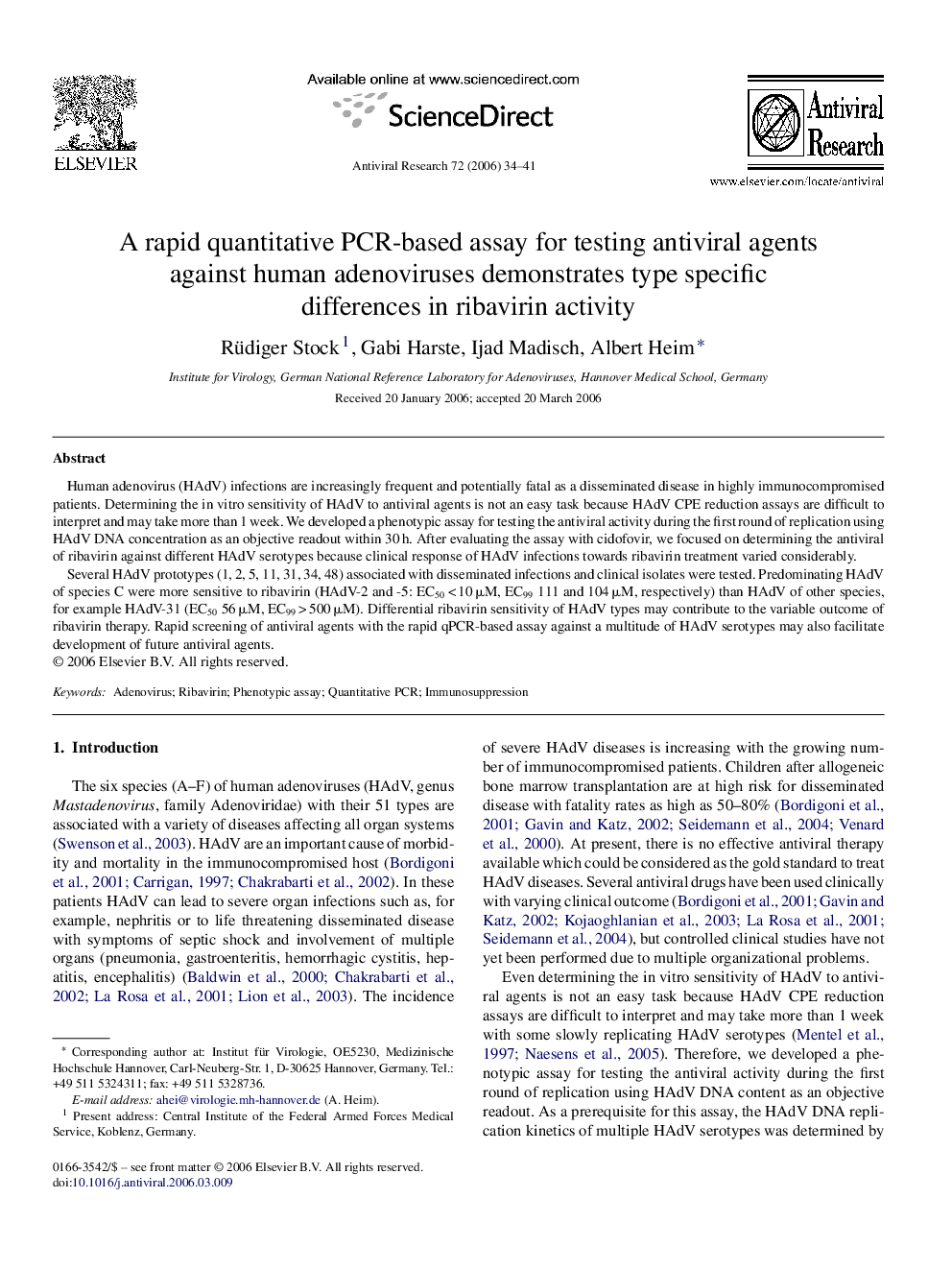| Article ID | Journal | Published Year | Pages | File Type |
|---|---|---|---|---|
| 2511597 | Antiviral Research | 2006 | 8 Pages |
Human adenovirus (HAdV) infections are increasingly frequent and potentially fatal as a disseminated disease in highly immunocompromised patients. Determining the in vitro sensitivity of HAdV to antiviral agents is not an easy task because HAdV CPE reduction assays are difficult to interpret and may take more than 1 week. We developed a phenotypic assay for testing the antiviral activity during the first round of replication using HAdV DNA concentration as an objective readout within 30 h. After evaluating the assay with cidofovir, we focused on determining the antiviral of ribavirin against different HAdV serotypes because clinical response of HAdV infections towards ribavirin treatment varied considerably.Several HAdV prototypes (1, 2, 5, 11, 31, 34, 48) associated with disseminated infections and clinical isolates were tested. Predominating HAdV of species C were more sensitive to ribavirin (HAdV-2 and -5: EC50 < 10 μM, EC99 111 and 104 μM, respectively) than HAdV of other species, for example HAdV-31 (EC50 56 μM, EC99 > 500 μM). Differential ribavirin sensitivity of HAdV types may contribute to the variable outcome of ribavirin therapy. Rapid screening of antiviral agents with the rapid qPCR-based assay against a multitude of HAdV serotypes may also facilitate development of future antiviral agents.
